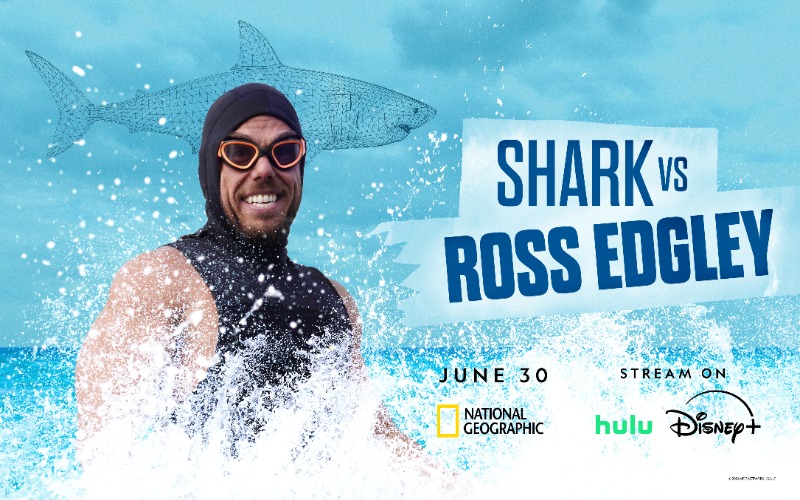
Known for his record-breaking 1,800-mile assisted sea swim, ultra-athlete and shark advocate Ross Edgley takes on four of the ocean’s toughest predators in a thrilling showdown featured in the upcoming film Shark vs. Ross Edgley. Witness as he attempts daring feats like replicating a hammerhead’s G-force turn, mimicking a white shark’s aerial Polaris breach, outpacing the swift mako shark, and mastering the feeding habits of a tiger shark.
Innovation & Tech Today interviewed Dr. Mike Heithaus, a renowned marine biologist featured in the film Shark vs. Ross Edgley, about his collaboration with Ross Edgley. Dr. Heithaus discussed the experience of working together, the advanced equipment and technology used during filming, and more!
Innovation & Tech Today: What was it like to collaborate with Ross Edgley on Shark vs. Ross Edgley?
Dr. Mike Heithaus: It was a ton of fun to work with Ross! His enthusiasm for his work and the sharks is infectious. What you see on screen is pure Ross all the time. Positive, funny, interested. He just devoured everything he could learn – as well as a few meals (he was trying to compare his appetite to a tiger shark after all) – with impressive insight and excitement that really made everything we did even more fun than normal.
I have to say it was also pretty inspiring to wake up in the morning and to see Ross working out – and he had been for hours – before we even got started with the day. I have a ton of respect for him and you can really see the drive and work ethic that helps him accomplish incredible feats. Getting to introduce him to some impressive sharks was a great experience for me.

I&T Today: Did you use any innovations during the filming of Shark vs. Ross Edgley?
Heithaus: For my segments, we used one of my favorite new techniques – gelatine bite pads. We have them mixed to the density of whale muscle and blubber so they help us get a sense of how much these sharks can eat in one bite, and we also can use them to understand what types of sharks and sizes of sharks might be leaving bites on dolphins.
In other parts of the program, Ross gets to use high-tech modeling and particle tracking to learn about the efficiency with which he – and sharks – can glide through the water.

I&T Today: What emerging technologies do you see revolutionizing the field of marine biology in the next decade?
Heithaus: There are going to be a lot. Video technology is getting smaller which makes it possible to record longer and to get videos in lower light conditions. This is going to revolutionize our understanding of shark behavior. Genetic technology is going to help us do rapid surveys of sharks and better understand what they are eating and how they are related. Autonomous vessels are going to help us better characterize their environments. And machine learning and AI are going to be critical in handling the massive datasets that we are generating!

I&T Today: How do you hope this film will impact conservation efforts for sharks?
Heithaus: As with all the work I’ve had the pleasure to work on with SharkFest, I hope that the public will come away from this show with a sense of wonder about sharks and get a little bit of the spark you see with Ross when he meets these animals. I also hope people will learn how important these animals are and be inspired to make decisions in their lives that help lead to the effective conservation of sharks and oceans more broadly.

I&T Today: What do you hope viewers will learn about sharks and marine ecosystems from watching this show?
Heithaus: I hope viewers will get a general appreciation of how amazing and important sharks are and how incredible ocean ecosystems are. Ultimately, it’s my hope that people will be inspired to make sure we are not just protecting but rebuilding populations of sharks and to do what they can to protect the ocean and also have their curiosity stimulated to explore more for themselves.
Shark vs. Ross Edgley (and the rest of Sharkfest) premieres June 30th on National Geographic and streams on Hulu and Disney+!











